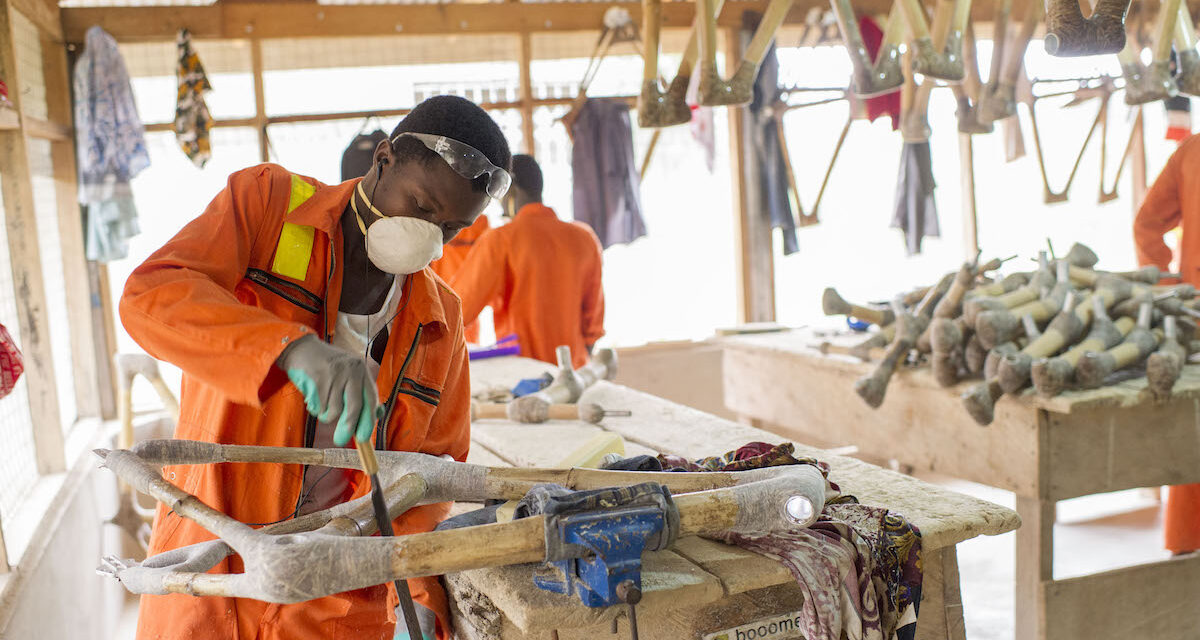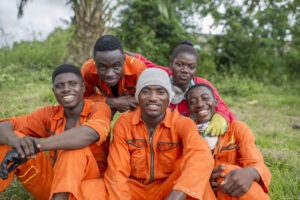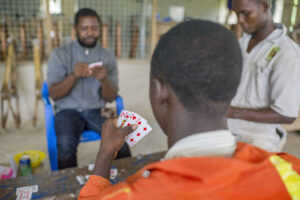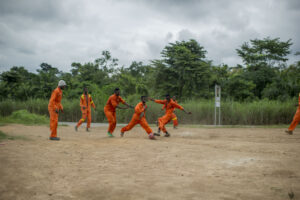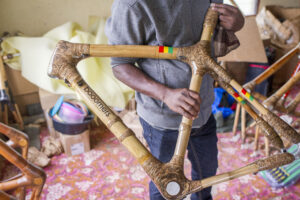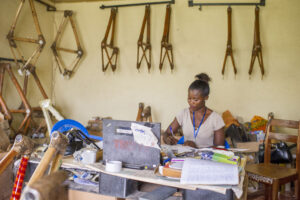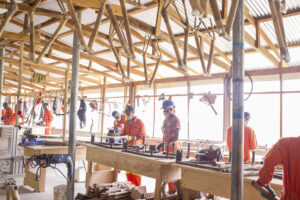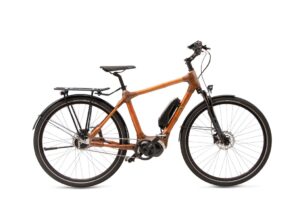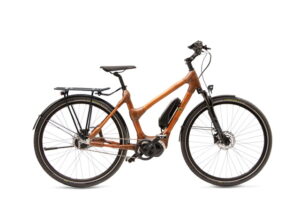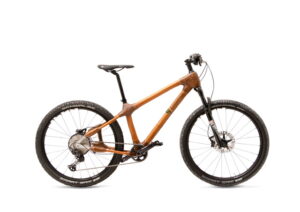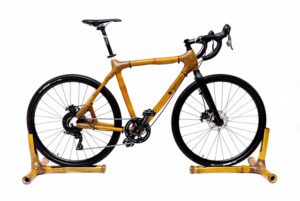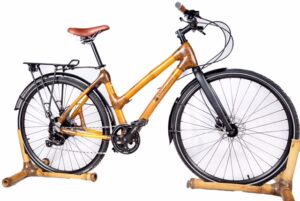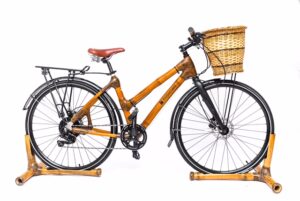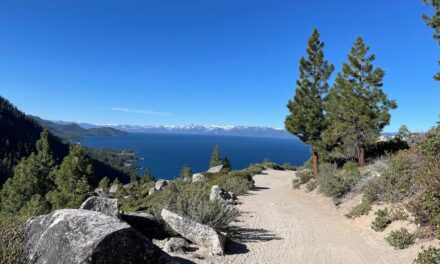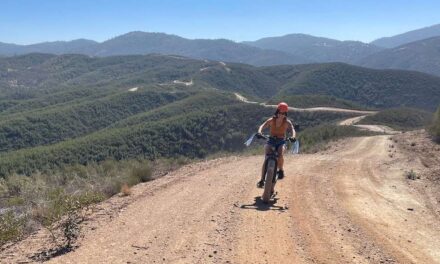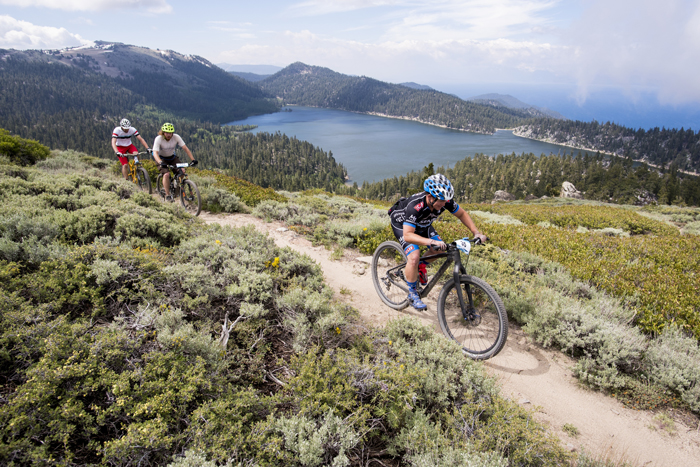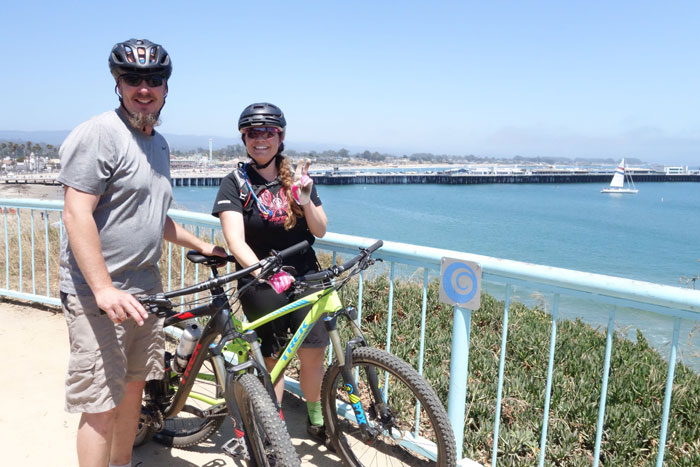- Death Valley’s Battle With Climate Extremes - 01/01/2024
- The Future of Homewood - 12/05/2023
- Kula Cloth - 10/18/2023
Boomers Bamboo Bikes
Words by Leonie Sherman with photos by Lacey Dippold Photography
It takes a village to make a Booomers Bamboo Bike, or three villagers eight hours, to be precise. This year a fleet of Booomers Bikes traveled from the Asante Region of Ghana to the Sea Otter Classic in Monterey for the second time. They showcased a hybrid city bike, two models of electric bike, a gravel bike and a mountain bike, all handmade in a factory in Apaah, Ghana from locally sourced bamboo. Proceeds fund scholarships for underprivileged youth at one of the best primary schools in the district.
“That event was mind blowing, the whole bike industry, they are so open and friendly, you don’t see that in many other industries,” says Ernest Osei, North American Director for Booomers Bikes. “The reception we got from cyclists was overwhelming. It is such a good product, people may have read about bamboo bikes, but once they see it and touch it, they get so passionate.”California adventure riders may have seen bamboo bikes before. In 1995, after wrestling over a bamboo stick with his 60-pound dog, Craig Calfee built a bike frame out of bamboo as a publicity stunt. It garnered a quarter page spread in Bicycle magazine. A later version won the People’s Choice Award at the first Handmade Bicycle Show. “Plus the bike was super smooth,” Calfee laughs. “So I started building them.”
Calfee also started exporting his idea to Africa in 2007. Two years later, while doing a bamboo bike training in Ghana, he met Booomers Bikes’ founder, Kwabena Danso.
Danso grew up in the Asante Region of Ghana, in a rural village with few employment opportunities. Like many other young people from the villages, he was drawn to the country’s capital, Accra, seeking a better life. Unlike many, after completing university, he returned to his home village, determined to find ways to break the cycle of poverty and empower his community.
Thanks to friends in Vermont, California and Oregon, Danso was able to raise funds for micro finance programs to begin business development in the Asante region. But none of his programs generated enough income to be financially sustainable.
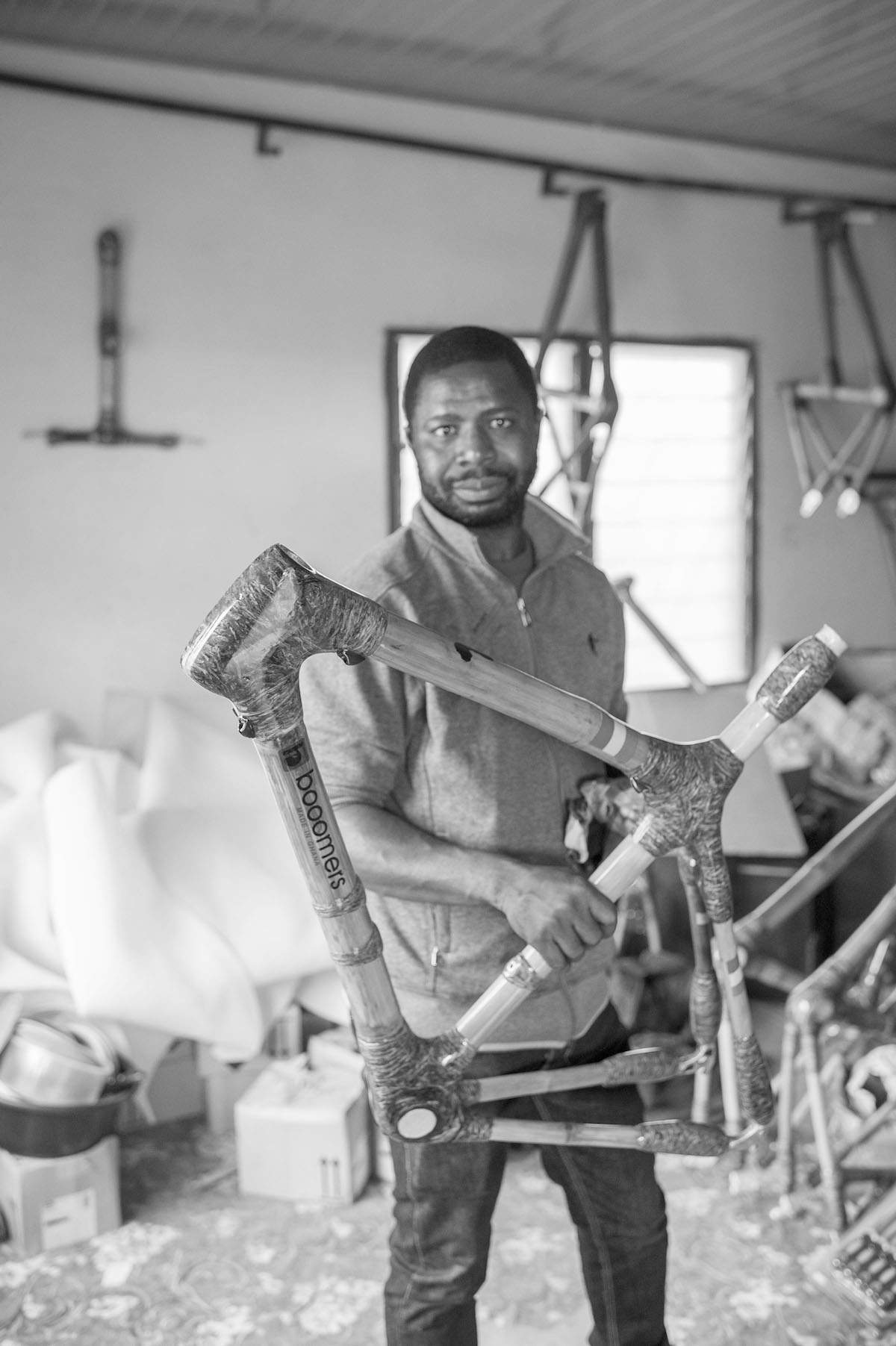
Booomers Bikes founder, Kwabena Danso, inspecting a bicycle frame at the factory in Ghana. by Lacey Dippold Photography
After completing the training with Calfee, Danso began a non-profit building bamboo bikes. But five years of struggle led him to abandon the project in favor of a for-profit enterprise with a social mission. “We realized we could generate more income, which would allow us to secure investment and guarantee higher quality bikes,” explains Danso. “That stability allows our project to focus on addressing four main problems: rural unemployment, poverty, climate change and rural urban migration.”
Booomers Bikes combats rural unemployment and rural urban migration by operating a factory in a small Ghanaian village that employs 40 people from the community; almost a third of them are female. “We actually recruit poor people for six months and train them on the job,” explains Danso. After six months they evaluate and determine if the person is ready to join the factory; if not, they offer an additional three months of training before re-evaluating.
“We give a stipend during the training period, so they can be comfortable and have full focus on learning skills,” explains Danso. “Once employed we give a full high wage, provide transportation, give health insurance and provide social security. We also feed them lunch every day and give them trainings on how to build their assets and savings. We want to empower workers so they can live above the poverty line and take care of their families.”
Many of the workers are high school drop outs who have never worked in a formal setting before. “They find many of the rules and policies very challenging,” admits Danso. Mandatory protective gear, work place behavior standards and even taxes can be confusing, and bring conflict between management and workers. Despite the difficulties, Danso loves his work. “For me, the most important thing is that we are able to engage these young people without them migrating to the cities,” explains Danso. “We make it possible for them to build their lives where they are most comfortable and happy – in their community.”
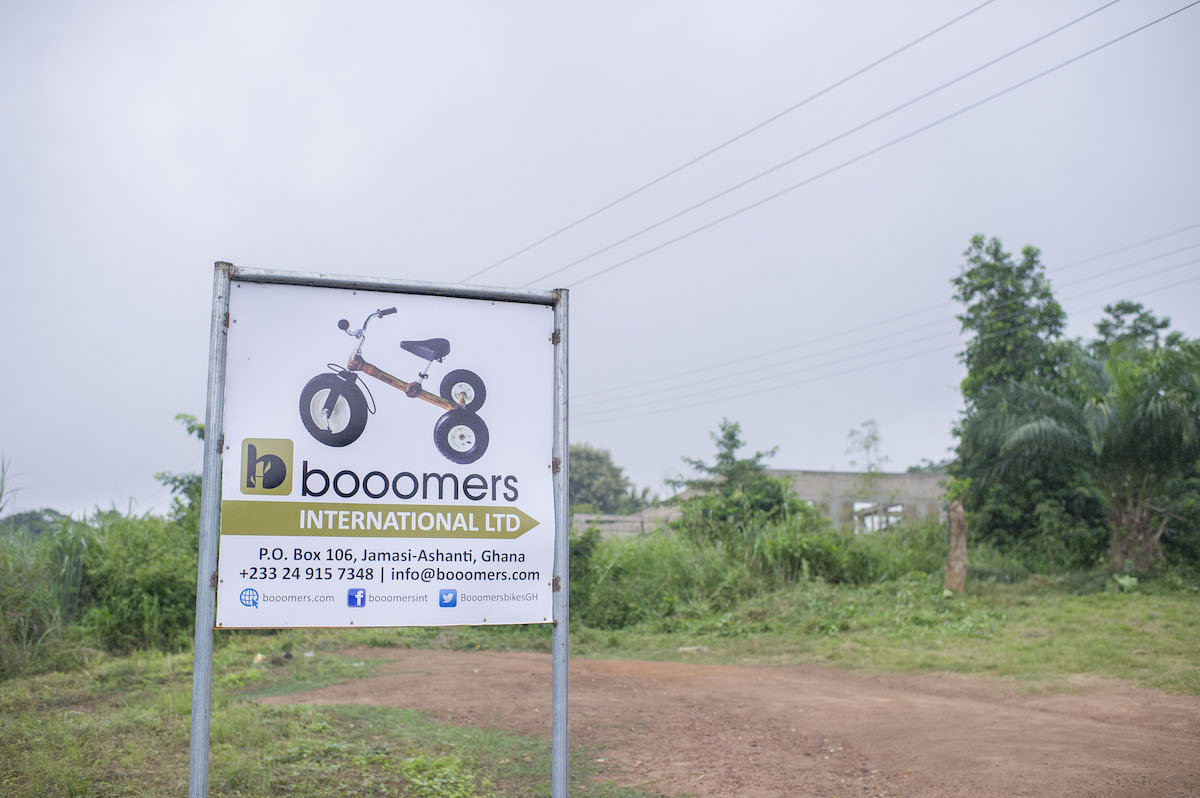
The Booomers Bike Factory. Photo by Lacey Dippold Photography
But Danso is not satisfied to raise 40 factory workers out of poverty; he wants to change the very fabric of society. “For many people, there is a perception that Africa is a place of corruption, famine and war. Some of these perceptions are true; we do have a high rate of corruption, for example,” Danso says. “But if we can train the next generation to think of leadership as a position of service, not just a way to amass wealth and personal gain, then we can change the status quo after two or three generations.”
Using proceeds from Booomers Bikes, Danso has provided scholarships for 400 students to receive a world class primary school education in rural Ghana. Two hundred fifteen of those students are female.
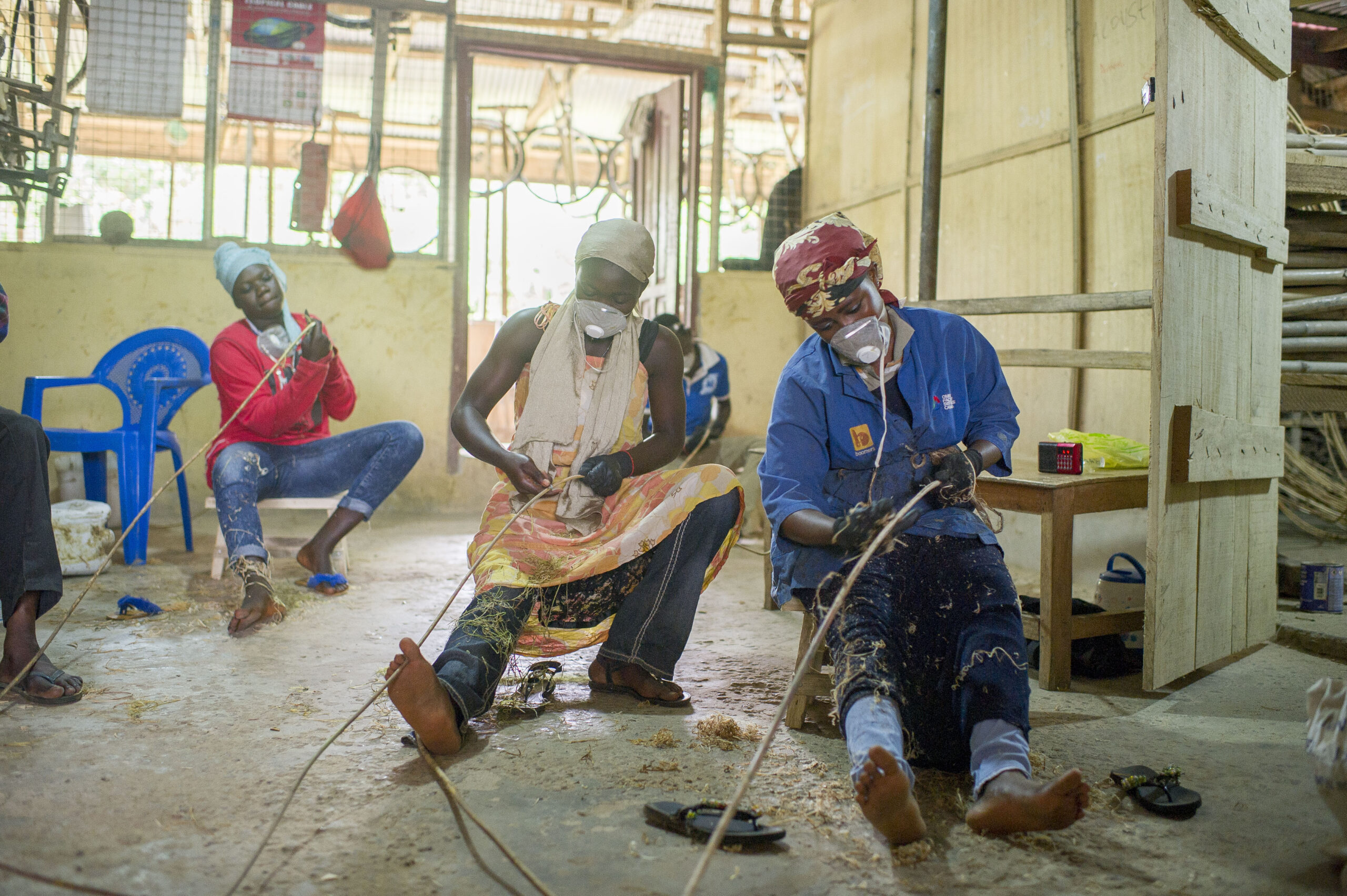
“Through the school, our focus is on changing the mindset of how young people view the world,” Danso says. “We want to create change makers who can challenge the status quo and provide true leadership by improving the lives of the people they lead.” There are currently 41 children participating in the scholarship program.
“Every child on scholarship gets free tuition and free books,” Danso explains. “We have two tiers of scholarships, partial and full. Full includes 100% tuition, books and computer studies, food and transportation. Those on the next tier get free tuition and books, but they pay for their food and transportation. Currently we are about half and half with our scholarship tiers.”
“A lot of these children would have dropped out of school without our support. But because of the scholarships we offer, many have been able to realize their dreams. Some are teachers, some are nurses, some are lawyers,” says Danso. “This would not have been possible without our school. I am so proud of the impact our bamboo bike project has made through this school.”
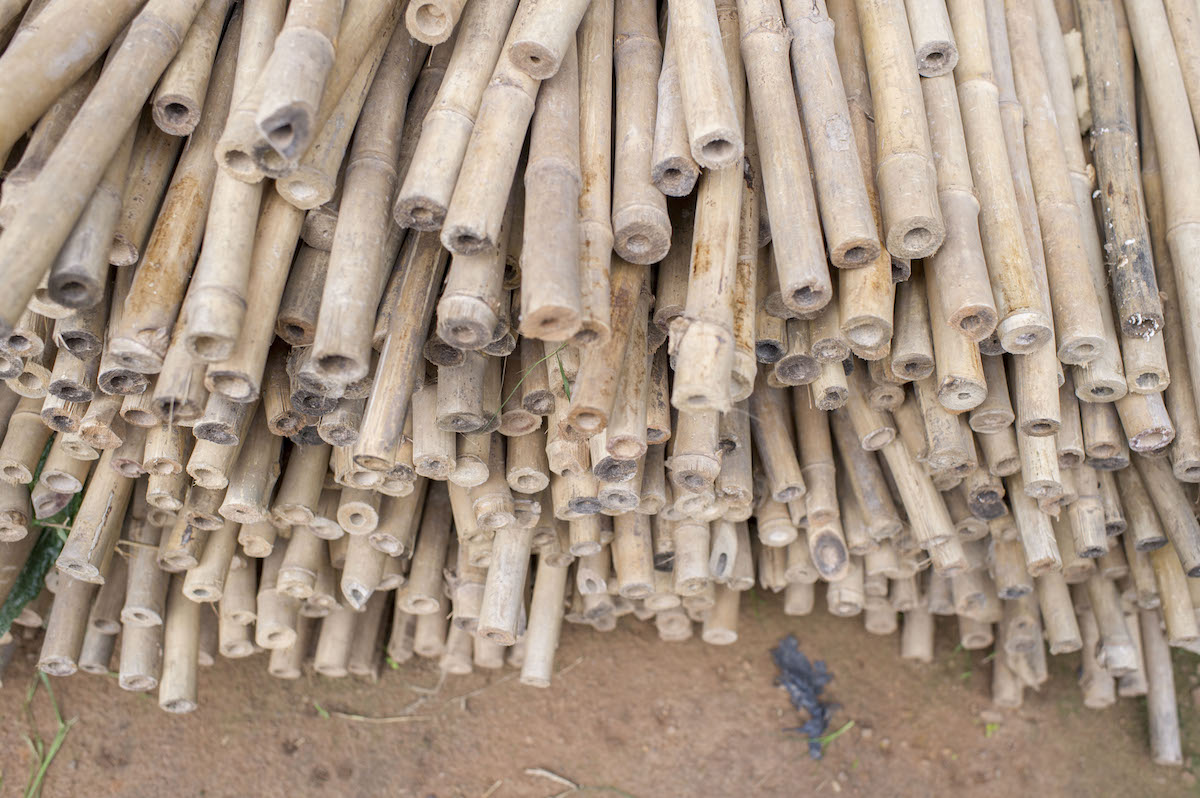
Dried treated bamboo ready to be processed into bikes. Photo by Lacey Dippold Photography
Their impact on climate change comes from reducing carbon in the atmosphere. “Bamboo absorbs more carbon and emits more oxygen than any other plant,” explains Danso. “Our frames are stronger and lighter than steel and also absorb shocks much better.” By offering a high end, affordable, attractive bike, Booomers encourages people to get out of their cars and burn less oil.
Booomers Bikes has sold 8,000 frames over the past decade, mostly in Europe. Last year, for the first time, a US customer could order one through the website, and anticipate a 14-21 day wait. This year a US customer can get a bike at the Calfee Design warehouse in La Selva Beach, where Booomers shipped an entire container of them during the Covid pandemic.
“We now serve as the US order fulfillment and distribution point for Booomers Bikes. We will handle any warranty problems, and service the bike as needed,” Calfee says.
Osei encourages folks to make an appointment for a test ride. “People at the Sea Otter Classic went nuts once they rode our bikes,” he enthuses. “And we’re just like, yeah, welcome to the movement. Enjoy it, love it, ride it!”
Read more bike related articles here.

